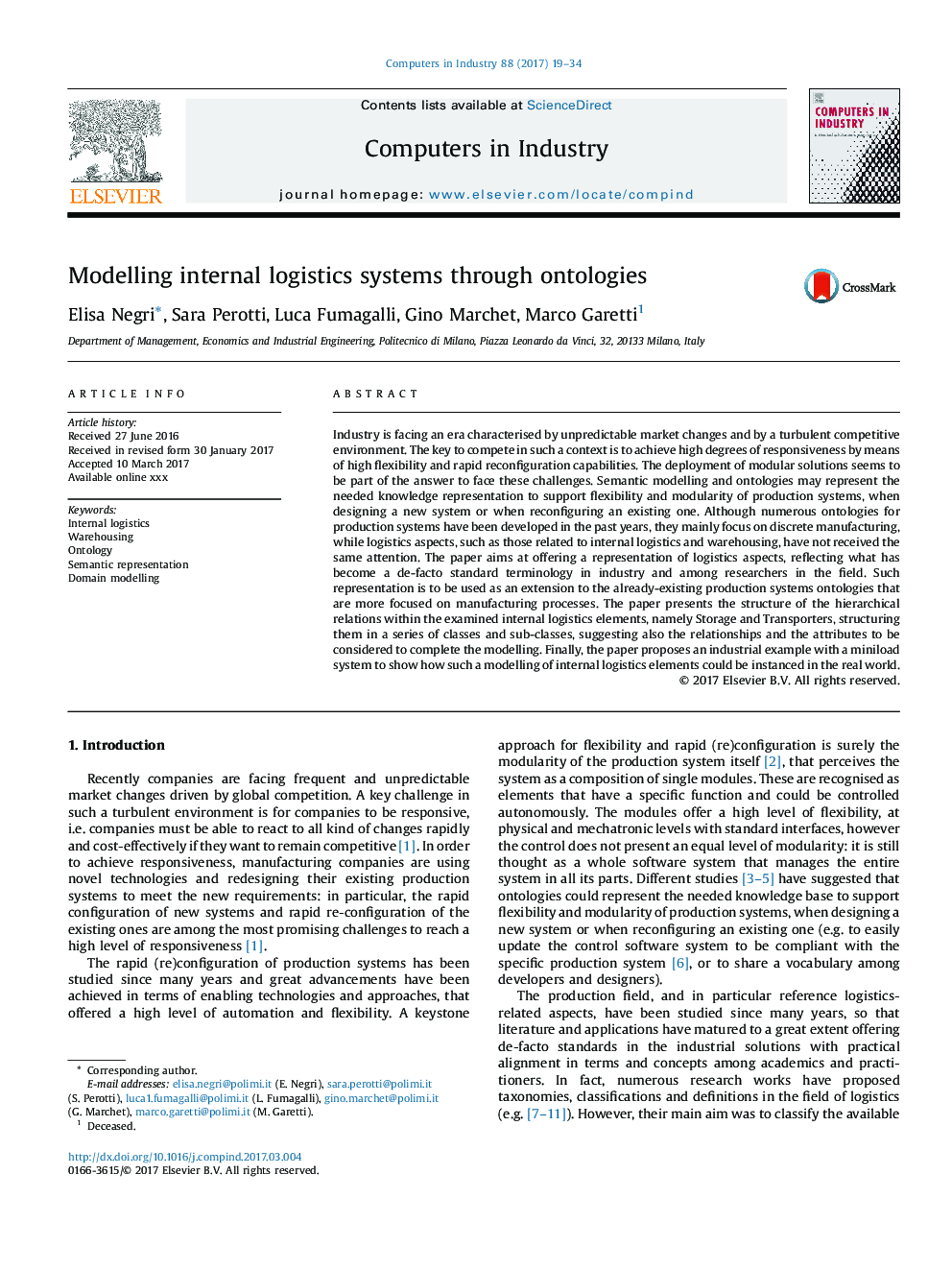| Article ID | Journal | Published Year | Pages | File Type |
|---|---|---|---|---|
| 4965568 | Computers in Industry | 2017 | 16 Pages |
Abstract
Industry is facing an era characterised by unpredictable market changes and by a turbulent competitive environment. The key to compete in such a context is to achieve high degrees of responsiveness by means of high flexibility and rapid reconfiguration capabilities. The deployment of modular solutions seems to be part of the answer to face these challenges. Semantic modelling and ontologies may represent the needed knowledge representation to support flexibility and modularity of production systems, when designing a new system or when reconfiguring an existing one. Although numerous ontologies for production systems have been developed in the past years, they mainly focus on discrete manufacturing, while logistics aspects, such as those related to internal logistics and warehousing, have not received the same attention. The paper aims at offering a representation of logistics aspects, reflecting what has become a de-facto standard terminology in industry and among researchers in the field. Such representation is to be used as an extension to the already-existing production systems ontologies that are more focused on manufacturing processes. The paper presents the structure of the hierarchical relations within the examined internal logistics elements, namely Storage and Transporters, structuring them in a series of classes and sub-classes, suggesting also the relationships and the attributes to be considered to complete the modelling. Finally, the paper proposes an industrial example with a miniload system to show how such a modelling of internal logistics elements could be instanced in the real world.
Related Topics
Physical Sciences and Engineering
Computer Science
Computer Science Applications
Authors
Elisa Negri, Sara Perotti, Luca Fumagalli, Gino Marchet, Marco Garetti,
